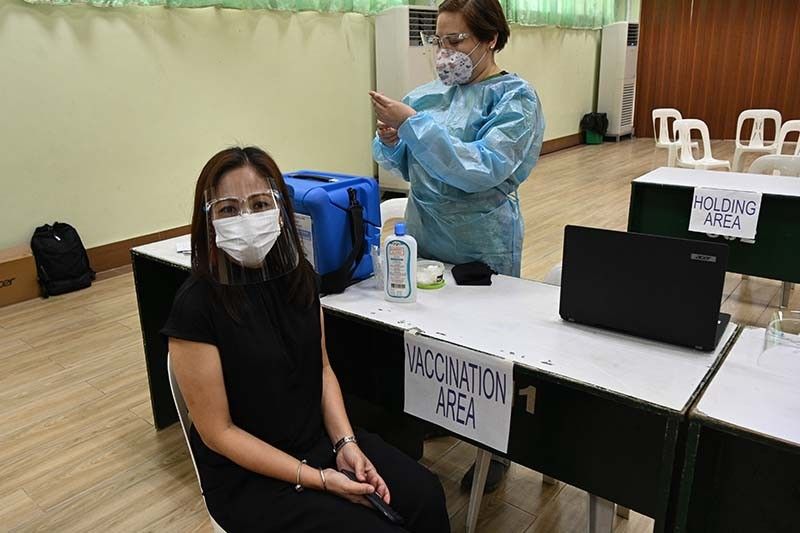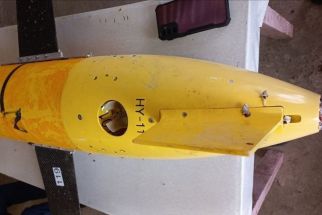Palace reminds people in 'A4' priority sectors to register for vaccination

MANILA, Philippines — The government's pandemic task force on Sunday reminded economic frontliners to register with their respective local government units (LGUs) so they can be included in the list of COVID-19 vaccination priorities.
Cabinet Secretary Karlo Nograles said LGUs in the National Capital Region (NCR) Plus — an area composed of Metro Manila, Bulacan, Cavite, Laguna, and Rizal — have online registration for their constituents who want to avail of pandemic shots.
"It can be done through online registration or you can go to your LGUS. The LGUs have been advised about the definition of A4 (frontline personnel in essential sectors)...You can call the LGUs and get the details on how to register... It is safer to register online," Nograles, also the co-chairman of the government's pandemic task force, told radio station dzBB.
"At least you will know if you are included (in the priorities). If you register online, you will choose your category...The LGUs will then verify if what you are saying is true," he added.
The government's pandemic task force has approved the list of workers who belong to A4 or economic frontliners, the sector below healthcare personnel (A1), senior citizens (A2), and persons with comorbidities or health risks (A3) in terms or priority.
Workers who fall under the A4 category are:
- Commuter transport workers
- Public and private wet and dry market vendors
- Frontline workers in groceries, supermarkets, delivery services
- Workers in manufacturing for food, beverage, medical and pharmaceutical products
- Frontline workers in food retail, including food service delivery
- Private and government financial services; hotels and accommodation establishments
- Priests and other religious leaders
- Security guards or personnel assigned in offices, agencies, and organizations identified in the list of priority industries
- Frontline workers in private and government news media
- Customer-facing personnel of telecoms, cable and internet service providers, electricity distribution and water distribution utilities
- Frontline personnel in basic education and higher education institutions and agencies
- Overseas Filipino workers
- Frontline workers in law or justice, security, and social protection sectors
- Frontline workers engaged in government transport system operations, quarantine inspection, worker safety inspection and other COVID-19 response activities Frontline government workers in charge of tax collection, assessment of businesses for incentives, election, national ID, and data collection personnel
- Diplomatic community and foreign affairs personnel in consular operations
- Public works personnel monitoring government infrastructure projects
"They are customer-facing, they are in the frontlines, they are exposed. They are the ones facing the public, they are not working from home," Nograles said.
"Our priority list is backed by science and evidence," he added.
Nograles assured the public that more vaccines are expected to arrive in the next few months despite the tight global supply.
"So hopefully, the bulk of the vaccines we ordered will arrive mid-year. So in preparation for the mid-year surge of our vaccines, at the very least, we are preparing all the master lists so we in the national government can program the allocation per LGU and so that we won't be surprised," Nograles said.
"It is now with the LGUs to submit the master lists so we would know who are really included in the A4...Everything is based on the allocation to be provided by the LGUs," he added.
Nograles said the Philippines has a portfolio of at least seven vaccine manufacturers to ensure that it would continue to receive jabs despite the supply constraints.
"If the delivery of the supplies from some vaccine manufacturers are interrupted, at least we still have other options because it is really a worldwide battle for the supply," he said.
The Duterte administration expects the delivery of more than 16 million doses of vaccine shots within the second quarter. A total of 13.5 million doses of COVID-19 shots are seen to arrive in July and as much as 20 million doses each are scheduled to be delivered in August and September.
- Latest
- Trending
































